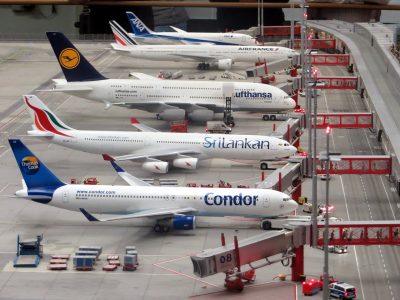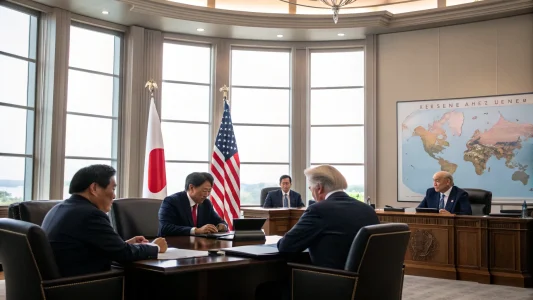Amidst growing international tensions and ongoing U.S. tariffs under the Trump administration, South Korea’s exports fell in May, which was a blow to the nation’s trade momentum. The trade ministry released preliminary figures on Sunday that showed outbound shipments dropped 1.3% year over year to $57.27 billion. This decline ended a three-month run of export growth, which had increased by 3.7% in April.
South Korea exports take a dip as US tariffs hit the global economy
The contraction was less severe than anticipated, despite a decline in exports. The Wall Street Journal polled economists, who forecasted a 4.9% drop. Additionally, imports declined, falling 5.3% to $50.33 billion. Consequently, South Korea’s trade surplus increased from $4.88 billion in April to $6.94 billion in May.
The most recent data emphasizes the increasing influence of protectionist U.S. trade policies and supports South Korea’s position as a global trade bellwether. Wide-ranging tariffs imposed by the Trump administration are currently having an impact on important export markets for South Korea. The administration has appealed the recent ruling by a U.S. court that the so-called “Liberation Day” tariffs were unlawful. Certain industry tariffs, like those on cars, are still in effect in the interim.
The auto industry has been particularly impacted. Vehicle exports from South Korea decreased 4.4% in May over the same month last year. One important factor seems to be the ongoing trade tension between Washington and Seoul. After declining 6.8% in April, shipments to the United States, South Korea’s second-largest export destination, fell 8.1% in May.
But not every sector encountered the same challenges. Due to strong worldwide demand brought on by advances in artificial intelligence, semiconductor and smartphone exports continued to grow. This tenacity helped counteract poor performance in petroleum and petrochemical exports, which fell precipitously, especially due to lower demand in China.
South Korea’s reliance on trade
Because of its economy’s reliance on trade, South Korea is still susceptible to tariff shocks. The Trump administration has imposed a 25% tariff on imports of steel and aluminum since March. It imposed a 25% tax on all imports of automobiles in April. In an attempt to “bolster the domestic industry and protect U.S. jobs,” Trump just last Friday announced plans to double tariffs on imported steel to 50%.
The White House also announced a “25% reciprocal duty” that targets South Korea specifically and includes a 10% baseline tariff. To facilitate negotiations, that measure has been put on hold for ninety days.
A federal appeals court permitted the broad tariffs to stay in place while the appeal was being heard, even though the U.S. Court of International Trade declared them unlawful under emergency economic powers. As Seoul demands relief akin to the concessions made to the United Kingdom and China, trade talks between South Korean and American officials continue.
Featured Image Credit: byunghyun lee; Pexels: Thank You!















